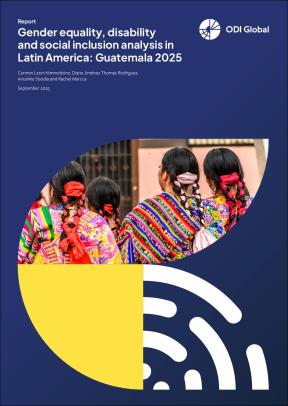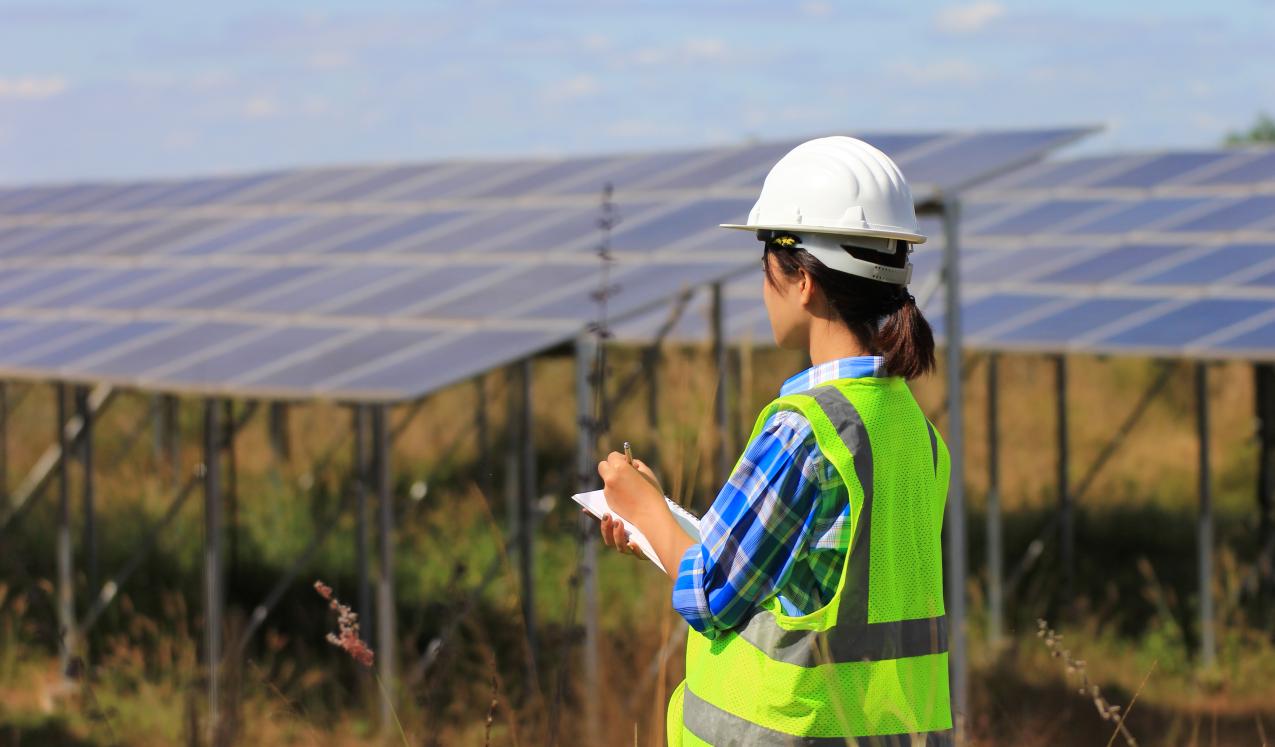
Gendered economic inequalities are among the most persistent and significant of all global gender gaps. In conjunction with factors such as overall economic opportunities, the political and legal context and the availability of public services, gender norms underpin these inequalities by:
- structuring access to resources
- affecting opportunities to develop skills
- influencing time-use and divisions of labour, and
- impacting people’s ability to act on the opportunities that are available to them.
Gender norms influence what activities – paid and unpaid – different people do, who occupies leadership positions, whose needs are accommodated, and how societies are organised to raise families and provide for them. In any given context, several norms may intersect and affect economic opportunities and behaviour - for example, beliefs around appropriate roles and behaviour for women and men at different stages of the life cycle or who should make decisions about resources.
Gender norms about women’s and girls’ economic activity are extremely varied and they can shift, for example when new economic opportunities arise, or when policies actively promote new norms. Economic empowerment initiatives can help to speed this process, but to be effective, they must also be sensitive to the specific norms that constrain women’s economic activity in particular contexts.
The resources on these pages share insights on transforming norms in diverse economic sectors (e.g. agriculture, manufacturing), using varied approaches (e.g. the role of legal reform, the impact of social media campaigns), and the potential of established poverty reduction tools (e.g. social protection) to contribute to norm change. They also provide insights on ways of shifting widespread persistent inequalities such as in unpaid care work, or work-related gender-based violence.
ALIGN’s report Transforming Gender Norms for Women’s Economic Empowerment explains the ways that gender norms influence economic outcomes, and synthesises evidence of effective approaches to shifting norms at scale.
Upcoming research
Transforming gender norms through integrated care systems in Latin America
Unpaid care work remains a critical factor underlying gender inequalities in economic life. The distribution of care work – paid and unpaid – remains deeply gendered, which in turn perpetuates gender inequalities in labour markets: limiting women’s economic wellbeing. One promising approach to providing care is integrated care systems, which have recently emerged in some Latin American countries and most notably in Uruguay.
Little is known, however, about their impact – and particularly whether they are an effective way to shift gender norms around care. This workstream will explore whether and how Uruguay’s integrated care system has shifted norms around care and contributed to greater economic empowerment for women. It will involve synthesis of secondary evidence and primary research in Uruguay.
Gender-equitable technical vocational education and training for low-carbon transition
Many of the emerging economic opportunities associated with low-carbon development are gendered ‘masculine’ because they are associated with specific areas of technology and technical skills. Women and girls are already missing out on work in these sectors, entrenching gendered economic inequalities and stifling the ‘talent pool’ for low-carbon development. Marginalised women and girls have even less access to these opportunities.
Gendered inequalities in technical and vocational education and training (TVET) have long been recognised and positive practices developed to overcome them. This workstream will bring together good practices in supporting women to develop the technical and soft skills required for low-carbon societies, and the transformations needed for this to happen on a much larger scale. It will involve synthesis of secondary evidence and primary research in Senegal and Zimbabwe.
ALIGN published resources on economic empowerment
Report
15 January 2024

Published by: ALIGN
Briefing paper
26 October 2023
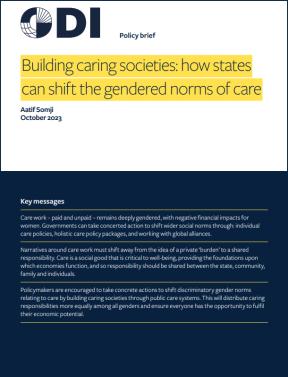
Report
26 March 2025
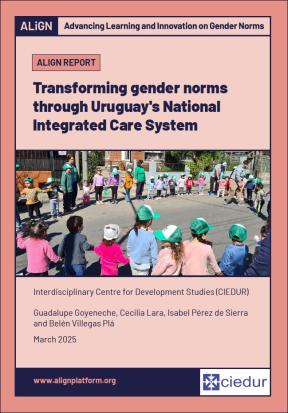
Report
20 March 2025
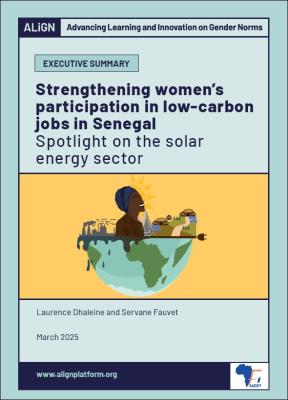
Report
20 March 2025
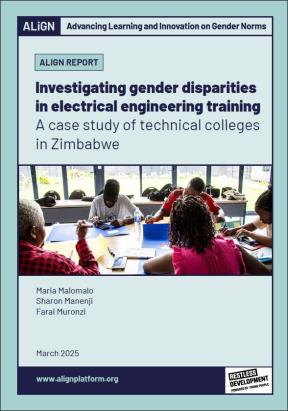
Resources from the ALIGN community
Book/Book chapter
1 March 2021
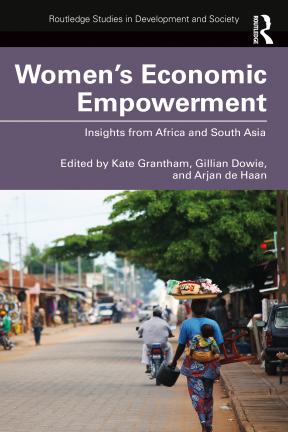
Blog
26 April 2019
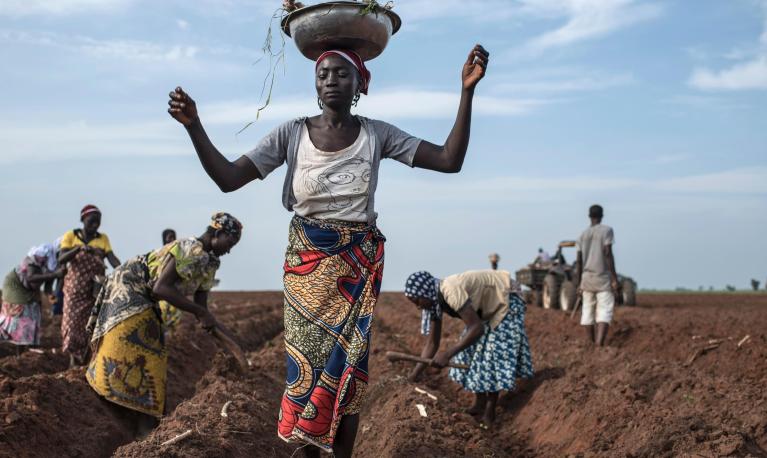
Published by: The Urban Institute
Report
7 November 2018
Report
20 October 2025
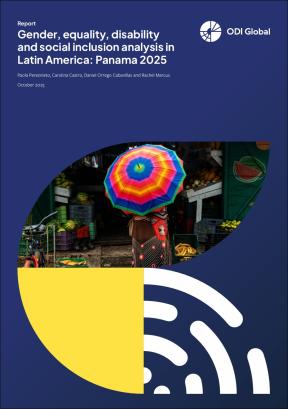
Report
6 October 2025
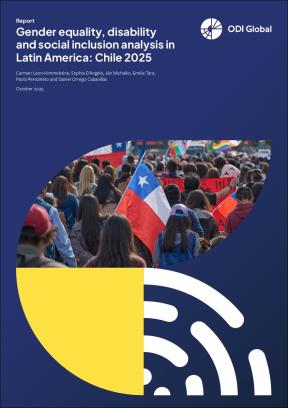
Report
22 September 2025
